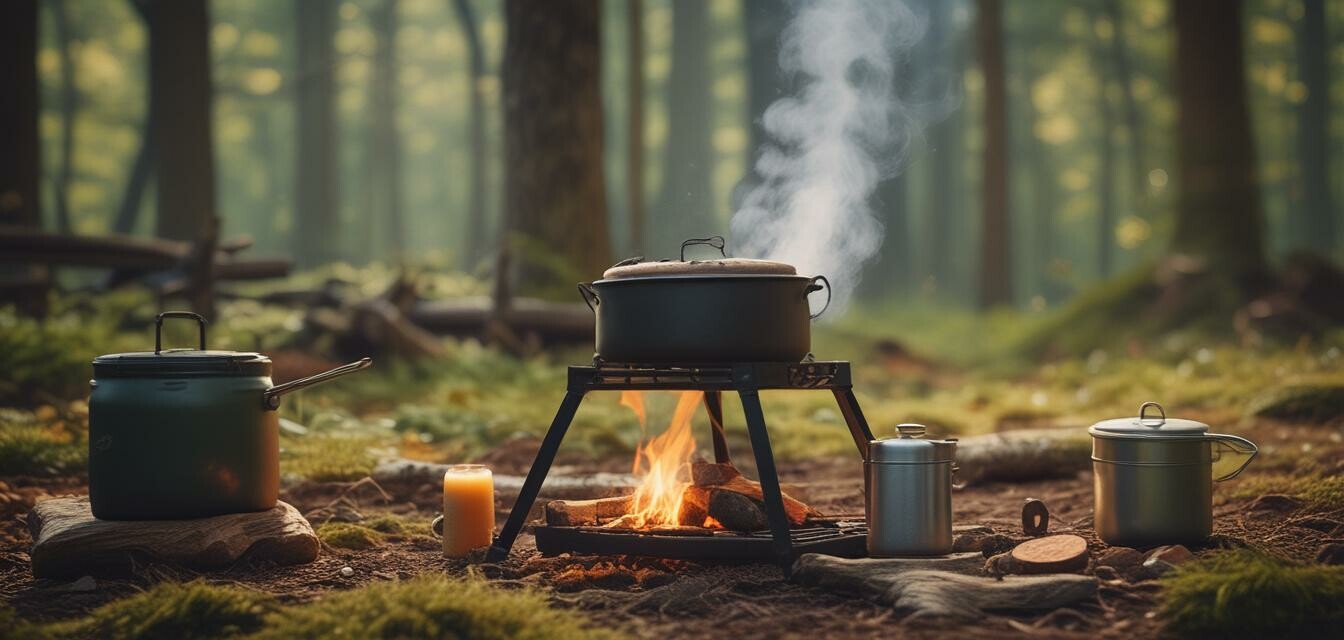
As an Amazon Associate, I earn from any qualifying purchases, at No Extra Cost to You.
Backpacking Cooking Pitfalls to Avoid
Key Takeaways
- Preparation is key to a successful backpacking cooking experience.
- Choosing the right cooking gear and food materials can enhance your meal experience.
- Avoid unnecessary complications with simple recipes.
- Understand the importance of cleanliness to prevent contamination.
- Stay aware of weight considerations when packing your cooking gear.
Backpacking offers a unique chance to connect with nature, but cooking in the wild can pose challenges even for experienced adventurers. Understanding common pitfalls can significantly enhance your overall meal experience on the trail. Below we delve into the most frequent cooking mishaps backpackers encounter and share valuable tips to avoid them.
Common cooking pitfalls when backpacking
| Pitfall | Description | Tip to Avoid |
|---|---|---|
| Not planning meals ahead | Many backpackers fail to prepare their meals in advance, leading to meals that are unbalanced or inadequate. | Create a meal plan with easy-to-cook recipes. |
| Packing heavy cooking gear | Using bulky cookware can turn your backpacking trip into a burden. | Invest in lightweight and compact cooking gear. |
| Ignoring food safety | Improper food storage can lead to spoilage, causing potential illness. | Know the basics of food safety and follow storage guidelines. |
| Overcomplicating meals | Attempting elaborate dishes while on the trail may lead to frustration. | Stick to simple and quick recipes that require minimal ingredients. |
| Forgetting cleaning supplies | Lack of cleaning implements can result in health hazards and foul odors. | Prepare a cleaning kit with biodegradable soap and a sponge. |
Detailed insights to avoid cooking pitfalls
1. Meal Planning
Without a structured meal plan, you may end up with ingredients that do not match or insufficient food. Spend some time calculating the daily food needs and selecting meals that meet your nutritional requirements. In this case, simplicity is your ally.
2. Choose lightweight cooking gear
Heavy cookware can dampen your backpacking experience. Opt for pots and pans made from lightweight materials such as titanium or aluminum, which are perfect for cooking over an open fire or on a small camping stove. These items are designed for the outdoor environment and can save you crucial space and weight.
3. Understand food safety
Foodborne illnesses can occur quickly when proper precautions aren’t taken. Always keep perishable items stored in a cooler if the environment allows it and eat them first. Dry foods like pasta, rice, and freeze-dried options are perfect for the trail and require less concern for spoilage.
4. Basic recipe ideas
Keep your cooking on the trail simple. Look for recipes that are not only easy to prepare but also require minimal ingredients. Dishes such as oatmeal, rice, and canned soups can be delicious and quick to make. Consider compiling essential recipes for trail cooking to have on-hand.
5. Keep it clean
Maintaining cleanliness is key when cooking outdoors. Leaving dirty utensils and cookware can invite pests and create an unpleasant environment. Always carry a lightweight scrubber and some biodegradable soap to ensure a hygienic cooking experience. You can learn more about keeping your camp tidy in our backpacking news section.
Weight considerations
Being mindful of the weight you carry is essential when you’re on the move. Each item counts, so consider avoiding duplicate items and only carry the minimal necessary cooking supplies. A comprehensive packing list can help streamline your backpacking essentials. For tips, check out our article on choosing the right backpacks for your trip.
Final thoughts
Cooking while backpacking can be one of the most enjoyable experiences, or it can become a frustrating chore. By being aware of common cooking pitfalls and following these tips, you can ensure that your meals are satisfying, safe, and an integral part of your adventure. Remember to embrace the simplicity of the great outdoors as you whip up delicious meals that fuel your explorations. Happy backpacking!
Pros
- Enhanced cooking experience with proper planning.
- Tasty meals improve the overall mood on the trail.
- Minimalist cooking adds flexibility to your itinerary.
Cons
- Potential for food safety issues if not addressed.
- Extra weight from unnecessary cooking gear.
- Complexity can detract from the camping experience.
